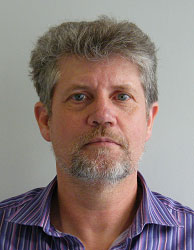An expert from the University of Nottingham has given his views on claims that a cure for multiple sclerosis could be within our grasp.
The proposed cure, using a protein in the body known as LIF, or Leukaemia Inhibitory Factor, is being used alongside new "groundbreaking technology" with clinical trials expected in 2020.
However, Dr Martin Garnett, Associate Professor in Drug Delivery at the University of Nottingham's School of Pharmacy, casts doubt about the possible timescales.

He said: "I would take it with a pinch of salt. Realistically, it's going to take a while to develop this."
"It's very difficult to get nano-particles to the brain. It's not impossible — there are bits of research showing that parts of the process are possible. But there are clearly a lot of issues. A more realistic timeframe would be five to 10 years."
The article was published on 14 June 2017 in the Nottingham Post and it is entitled 'Is a cure for multiple sclerosis just around the corner?'
Martin Garnett has been working on various aspects of drug delivery using nanoparticles for over 25 years, and has been developing nanoparticles for delivery to the brain for Children’s brain tumour research since about 2000. While most of his research has been concerned with delivery of anticancer drugs, Martin has also carried out work developing delivery systems for both DNA and proteins in the biologics field. Earlier in his career he was also involved in the development of targeted therapies using monoclonal antibodies.
Posted on Monday 19th June 2017